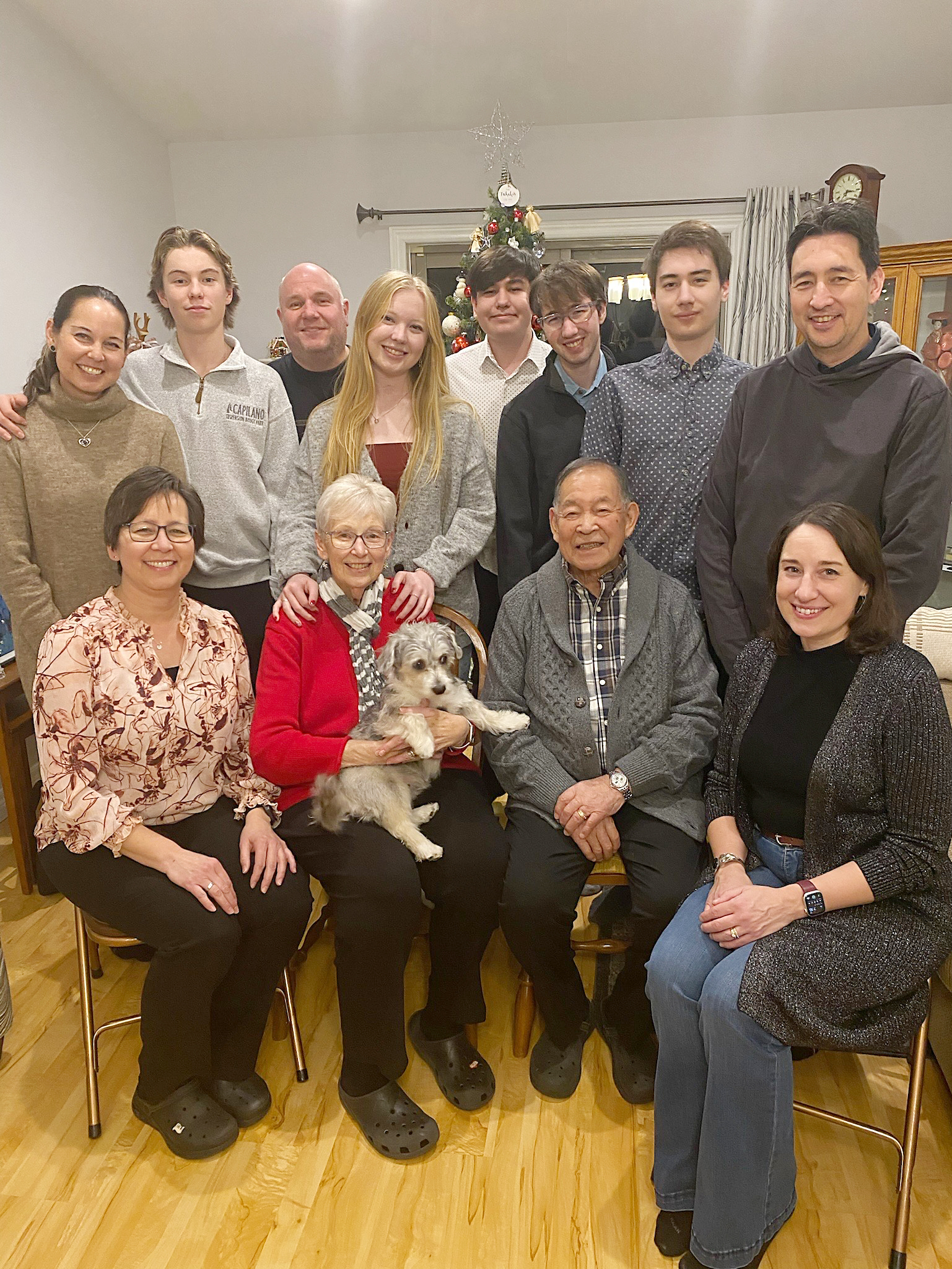By Mark Ribble
Life has been a journey for Fred Takaki, who just turned 90 on December 21.
His story is one that he likes to tell — especially to young people who he feels will benefit from knowing how Canadians with Japanese heritage were treated after the onset of the Second World War.
His father was born in Japan and moved to British Columbia when he was 19, later marrying Fred’s mother, who was a Canadian-born citizen of Japanese descent.
Fred himself was born in Maple Ridge, B.C., in 1934 on a farm owned by his parents.
Life was good until December 7, 1941, when the Japanese attacked Pearl Harbor.
“That attack changed the lives of 22,000 people of Japanese heritage living along the lower mainland of B.C and Vancouver Island,” he said. “The beginning of World War II and the decisions of the Canadian and B.C. governments had a huge influence on our family life for the next 11 years.”
On February 25, 1942, Prime Minister William Lyon MacKenzie King announced the removal of all Japanese people living in British Columbia and with the enactment of the War Measures Act, suspended all civil liberties of those people, who were now considered enemy aliens due to the war with Japan.
Despite the head of the RCMP at the time advising the government that these people were not a threat in any way, they were still declared enemy aliens — and 70 per cent of them were Canadian-born citizens.
Fred says that all 22,000 Japanese Canadians living within 160 km of the west coast were evacuated inland.
All homes, property, farms, businesses, automobiles and belongings were seized and the families were forced from their homes. A custodian was appointed to take care of the properties until the families returned, but instead the government reportedly sold everything at very low prices.
“When my grandfather was told the government was going to seize all the property, he gave most of his farm equipment to his Caucasian neighbour,” says Fred. “He found out later that the government seized all of that equipment from the neighbour.”
Everyone over the age of 16 had a curfew and men from ages 18 to 49 were removed from their homes by police and sent to the B.C. Interior to build roads and clear land for internment camps.
“My dad was in this group and we didn’t see him for months,” says Fred.
He says his uncle was in a different group of about 800 men who protested the move and were sent to prisoner of war camps in northern Ontario.
“They wore shirts with targets on the backs to make them more visible if they tried to escape,” says Fred.
In March of 1942, families left behind were given one day’s notice to vacate their homes, and were allowed to take one suitcase with a 50-pound weight limit.
“At that time, I was seven years old and had three younger brothers,” says Fred. “My grandmother also lived with us.”
The families — totalling about 8,000 people — were taken to a park in Vancouver and housed in a building formerly used for cattle, sleeping in steel bunkbeds with straw for mattresses.
After a few months, they boarded a train to the Kootenay Valley west of the Rockies, where they were housed in tents.
“I remember snow blowing in under the tent flaps,” says Fred.
Eventually, the family of seven moved to Lemon Creek, where they stayed for about four years, in a house that was about 10’ x 24’ and operated with a wood stove and coal oil lamps. Fred attended school at Lemon Creek where they were taught by Caucasian high school and university students.
He said the government opened and censored all incoming and outgoing mail at the Lemon Creek camp.
In 1945, with the war coming to a close, the families were on the move again as no Japanese people were allowed to stay in British Columbia. They chose to head to Manitoba to be near his father’s family and lived in a house with no indoor plumbing and no hydro, amid very cold winters.
“After about six years, in 1953, we moved to Ontario, where my grandparents and a couple of uncles had settled,” said Fred.
It was then that the Takaki family came to Leamington. Fred was 18 years old and about to embark on adulthood, meeting his future wife Donna, whom he married in 1967.
Donna and Fred raised three now-grown children here, where Fred operated Oak West Auto Clinic for 29 years, starting in 1974.
In September 1988, Prime Minister Brian Mulroney signed an acknowledgment stating that during and after the war, Canadians of Japanese ancestry suffered unprecedented actions by the government of Canada and pledged to make sure that never happened again.
This brought Fred some satisfaction but also got him thinking about something his father said to him back in the 1960s.
“One thing my dad asked me years ago was if I thought the government would ever apologize for this wrongdoing,” he says. “I told him it would probably come after many of those people had passed away. Of the 22,000 who were interned, only 14,000 lived long enough to hear the acknowledgment.”
Now retired and having just celebrated his 90th birthday, he spends some of his time speaking at churches and high schools about the internment of the Japanese Canadians during World War II and teaching people about the hardships endured by his family and many others.
Fred’s family gathered in late December 2024 to celebrate that milestone birthday, where two of his brothers and two sisters attended.









































